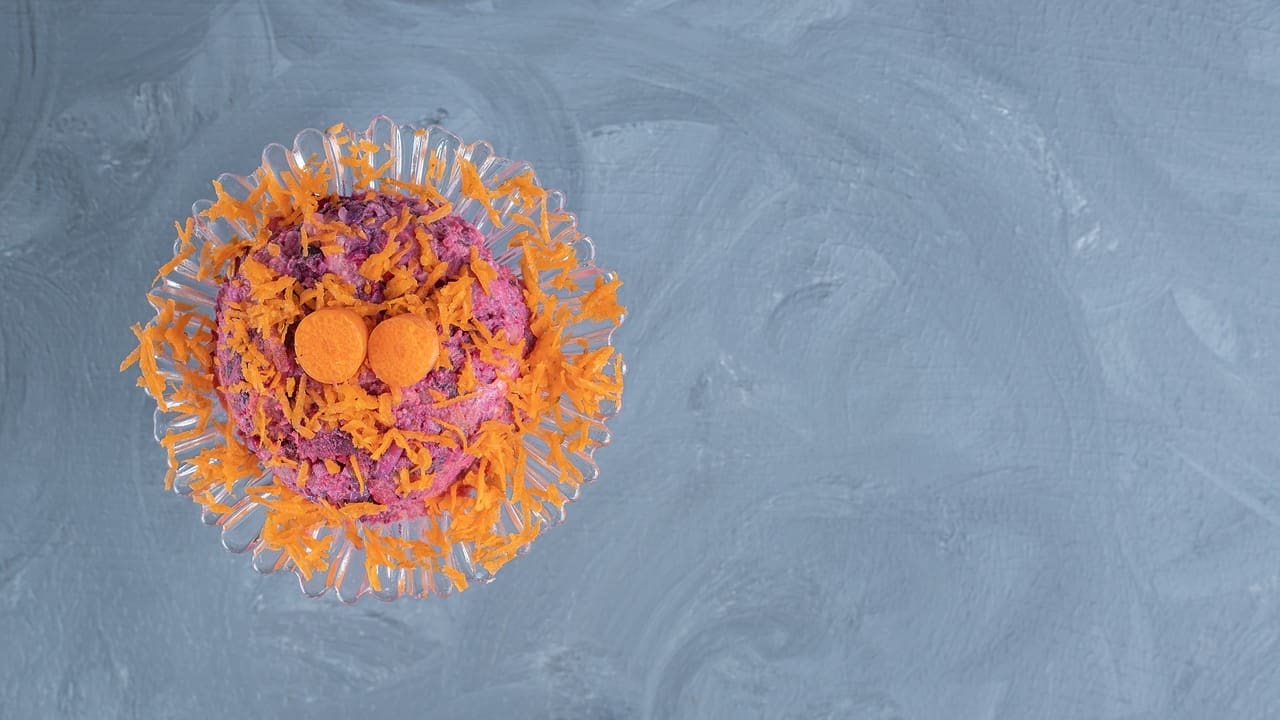Last Updated on November 3, 2025 by mcelik

At Liv Hospital, we focus on trustworthy, patient-centered care. The link between an alkaline environment in the body and cancer is often unclear. Our bodies naturally keep a pH balance that’s slightly alkaline (7.35–7.45). This balance is key for our health.
Studies show no direct connection between an alkaline diet and cancer prevention. Yet, knowing about our body’s pH balance is vital for making smart diet and lifestyle choices.
We will dive into the facts about alkaline diets, pH balance, and their health effects. We’ll stick to the latest medical evidence.

Our bodies work hard to keep a balance between acid and alkaline. This balance is shown by the pH level. It tells us if something is acidic or alkaline.
pH is a scale that shows how acidic or alkaline something is. It goes from 0 to 14. A pH of 7 is neutral. Values below 7 are acidic, and above 7 are alkaline.
Each part of our body has its own pH range. For example, blood pH is tightly regulated between 7.35 and 7.45.
The blood’s pH range is key for oxygen delivery and metabolism.
The digestive system’s pH changes a lot. The stomach is very acidic (pH 1.5-3.5). But the intestines are more alkaline.
| Body System | Normal pH Range |
|---|---|
| Blood | 7.35-7.45 |
| Stomach | 1.5-3.5 |
| Intestines | 7-8 |
The body uses many ways to keep pH balance. This includes buffer systems and organs like the kidneys and lungs.

Knowing about an alkaline body environment is key to good health. Our bodies need a balance of acidity and alkalinity to work right.
In medicine, an alkaline body means our pH balance is right. “pH” is short for “hydrogen ion concentration.” A balanced pH level is slightly alkaline, between 7.35 and 7.45 in our blood.
It’s important to know the difference between blood pH and tissue pH. Blood pH stays the same, but tissue pH can change a lot. For example, the stomach is very acidic, but the small intestine is more alkaline. Some studies show that different body tissues have their own pH levels.
Many ways claim to measure body alkalinity, but not all are true.
Blood tests are the most accurate for pH levels. But, saliva and urine tests can give hints but are not as sure. These tests can be affected by what we eat and when we do them.
Home tests, like pH paper and litmus tests, have their limits. They might not give the right reading and can be swayed by outside things. So, it’s important to know their limits when checking body alkalinity.
Keeping the body’s pH balanced is key to staying healthy. The body uses many ways to keep its pH in check. This ensures that all bodily functions work well.
The kidneys are important for pH balance. They control the amount of hydrogen and bicarbonate ions in the body. They get rid of too much hydrogen to prevent acidosis and keep bicarbonate levels right.
The lungs help keep pH levels stable by managing carbon dioxide (CO2). By changing how fast or deep we breathe, we can get rid of more CO2 to fight acidity. Or, we can hold onto CO2 to fight alkalosis.
Buffer systems in the blood are vital for quick pH adjustments. They neutralize extra hydrogen or hydroxide ions to keep pH stable.
The bicarbonate buffer system is a major player in the body. It turns strong acids into weaker ones, keeping blood pH steady. This system is very effective and can be quickly replenished.
Proteins, like hemoglobin and plasma proteins, also act as buffers. They can take in or give out hydrogen ions to keep pH balanced. This is critical for the body’s acid-base balance.
To understand how alkalinity affects cancer, we need to look at the theory’s origins and the science behind it. The idea that an alkaline body can fight cancer has sparked a lot of interest.
The theory says cancer cells can’t grow in an alkaline body. Health experts and websites like phkillscancer.com say changing your body’s pH can stop or cure cancer.
Studies show cancer cells grow best in acidic, not alkaline, environments. The link between alkalinity and cancer is more complicated than thought. Cancer cells can make their area acidic, helping them grow.
The area around tumors is key in cancer growth. Cancer cells can change this area, affecting its pH.
Cancer cells use a lot of glucose, making lactic acid and lowering pH. This acidic setting helps tumors grow and spread.
The acidic setting around cancer cells helps them grow and spread. It also weakens the body’s immune fight against tumors.
| Characteristics | Cancer Cells in Acidic Environment | Cancer Cells in Alkaline Environment |
|---|---|---|
| Growth Rate | High | Low |
| Metastasis | Increased | Decreased |
| Immune Response | Suppressed | Enhanced |
Exploring the link between alkalinity and cancer shows an alkaline diet might not cure cancer. But, eating fruits and veggies supports health and can help prevent cancer.
“The acid-mediated invasion hypothesis suggests that tumor cells create an acidic microenvironment through their metabolic activity, which in turn facilitates their invasive ability.”
Many people think changing their diet can change their blood pH. But this is a myth that needs to be cleared up. It’s important to know the truth about pH and cancer prevention.
The human body has a smart system to keep pH levels stable. Despite claims, there’s no solid proof that diet can change blood pH a lot.
Some studies seem to say an alkaline diet stops cancer. But these findings are often taken out of context or simplified too much.
Websites claim pH and diet can prevent cancer, but they often use weak evidence. We need to look at these claims with a critical eye.
Studies have looked into how diet, pH, and cancer prevention are linked. They show diet is important for health, but it doesn’t change blood pH much.
| Myth | Fact |
|---|---|
| Diet can significantly alter blood pH. | The body maintains pH homeostasis regardless of diet. |
| An alkaline diet can prevent cancer. | Evidence is limited and often misinterpreted. |
| pH diet can cure cancer. | No clinical evidence supports this claim. |
Knowing the truth about pH and cancer prevention helps us make better health choices.
Understanding the alkaline diet is key for those wanting to make smart food choices. This diet aims to keep your body’s pH balanced. It’s thought to bring health benefits.
Alkaline-forming foods are packed with nutrients and antioxidants. They include:
Acid-forming foods can upset your body’s pH balance. These are:
The alkaline diet idea started in the early 1900s. It was seen as a way to prevent diseases.
To make your body more alkaline, you need to change what you eat and how you live. It’s all about the food you choose and your lifestyle.
Eating more plant-based foods is key to alkalizing your body. These foods are full of nutrients and help keep your body pH balanced. Leafy greens, fruits, and veggies are some of the best choices.
| Food Group | Examples | Alkaline Effect |
|---|---|---|
| Leafy Greens | Spinach, Kale, Collard Greens | High |
| Fruits | Apples, Berries, Citrus Fruits | Moderate to High |
| Vegetables | Broccoli, Cauliflower, Carrots | Moderate to High |
It’s also important to eat less processed foods and meats. These foods can make your body more acidic and upset your pH balance.
Living a healthy lifestyle is also vital for an alkaline body. This includes staying active and managing stress well.
Exercise boosts your circulation, metabolism, and detox processes. It helps keep your body’s pH in check.
Too much stress can harm your body’s pH balance. Using stress-reducing activities like meditation or yoga can help.
Many people seek an alkaline body environment. They look into alkaline water, cleanses, and supplements. They believe these can help keep their body pH balanced. But, what does science really say?
Alkaline water is touted for its health benefits, like neutralizing body acidity. Yet, scientific proof for these claims is scarce. Our bodies have a strong system to keep pH levels stable. There’s no solid evidence that drinking alkaline water makes a big difference.
Alkaline cleanse programs suggest dietary changes and supplements to lower acidity. They might help with short-term weight loss or detox. But, long-term gains are uncertain, and there’s a risk of missing out on essential nutrients.
Going too far with alkalizing can be harmful. Alkalosis, or too alkaline blood, is risky.
Supplements can cause alkalosis. This can lead to symptoms like confusion, muscle twitching, and nausea.
When looking at alkaline products, it’s key to think about cost versus benefits. Many of these items lack strong scientific backing.
| Product | Claimed Benefits | Scientific Evidence |
|---|---|---|
| Alkaline Water | Neutralizes body acidity | Limited |
| Alkaline Cleanse | Promotes detoxification | Questionable long-term benefits |
| Alkaline Supplements | Supports pH balance | Risk of alkalosis |
In conclusion, while alkaline water, cleanses, and supplements are popular, it’s important to be cautious. We should consider both the possible benefits and risks.
Alkaline foods have many health benefits beyond just pH levels. They are mostly plant-based and full of nutrients, antioxidants, and fiber. These help keep you healthy and feeling good.
Plant-based foods, which are mostly alkaline, are packed with vitamins, minerals, and other good stuff. These nutrients help your body work right, give you energy, and fix itself.
Many alkaline foods fight inflammation in the body. Chronic inflammation can lead to heart disease, diabetes, and some cancers. Eating anti-inflammatory alkaline foods can lower your risk of these diseases.
Alkaline foods are full of antioxidants. These protect cells from damage. This damage can cause cells to not work right and lead to diseases.
Fruits and veggies, key in an alkaline diet, have compounds that fight cancer. Phytochemicals like polyphenols and carotenoids help protect against some cancers.
Eating alkaline foods means you get a lot of fiber. Fiber is key for a healthy gut. A healthy gut is important for digestion, immune function, and even your mind.
Eating whole, nutrient-rich alkaline foods offers many health benefits. It’s not just about pH levels. It shows how important a balanced diet is for staying healthy and feeling great.
We can lower cancer risk by making dietary and lifestyle changes. Knowing these factors helps us make better health choices.
Eating lots of fruits, veggies, and whole grains can protect against some cancers. Plant-based foods give us key nutrients and antioxidants. The alkaline diet might also help, but more research is needed.
Being active and keeping a healthy weight are key to cancer prevention. Regular exercise and a balanced lifestyle boost health and lower cancer risk. Also, quitting tobacco and drinking less alcohol are important steps.
Health groups have set guidelines for cancer prevention based on science. It’s vital to understand these to make smart health choices.
Groups like the American Cancer Society offer advice on preventing cancer. Their statements are backed by scientific research, helping both the public and doctors.
Be wary of claims that seem too good to be true or lack evidence. It’s important to critically evaluate health info to spot real advice from false promises.
It’s important to understand how alkaline diets, pH balance, and cancer are connected. Keeping our body’s pH balanced is key. We can do this with a healthy diet and lifestyle.
Studies on alkaline diets and cancer show they have their limits. Yet, eating alkaline foods can boost our health. Eating more whole, plant-based foods and less processed ones can help us stay healthy and might lower cancer risk.
Knowing how our body’s pH balance works helps us make better choices. This knowledge, along with proven ways to prevent cancer, empowers us to care for our health. It’s a step towards a healthier life.
The human body is slightly alkaline, with a pH of 7.35 to 7.45. Different parts of the body have their own pH ranges. But overall, the body keeps its pH in balance tightly.
Some studies suggest an alkaline diet might be beneficial. But, there’s no solid proof it stops cancer. Cancer prevention is complex, involving diet, lifestyle, and genetics.
The body’s pH balance is kept by the kidneys, lungs, and blood buffers. These work together to control pH and keep the body stable.
Blood pH is the acidity or alkalinity of blood. Tissue pH is the pH of body tissues. Blood pH is tightly controlled, but tissue pH can change based on activity and oxygen levels.
There’s little scientific proof for the health benefits of alkaline water and cleanses. While some claim benefits, we advise caution. Always talk to a healthcare professional before trying extreme alkalizing methods.
Alkaline-forming foods include fruits, vegetables, legumes, and nuts. These foods are full of antioxidants, fiber, and nutrients that support health.
Yes, diet can affect cancer risk. Eating more plant-based foods, whole grains, and lean proteins, and less processed foods, can help. We suggest following evidence-based cancer prevention guidelines.
A balanced diet is key, but lifestyle matters too. Regular exercise, a healthy weight, not smoking, and less alcohol can help. These habits support overall health and may lower cancer risk.
Yes, extreme alkalizing can be risky. Severe alkalosis can cause muscle weakness, nausea, and confusion. Always consult a healthcare professional before making big changes to diet or lifestyle.
Subscribe to our e-newsletter to stay informed about the latest innovations in the world of health and exclusive offers!
WhatsApp us